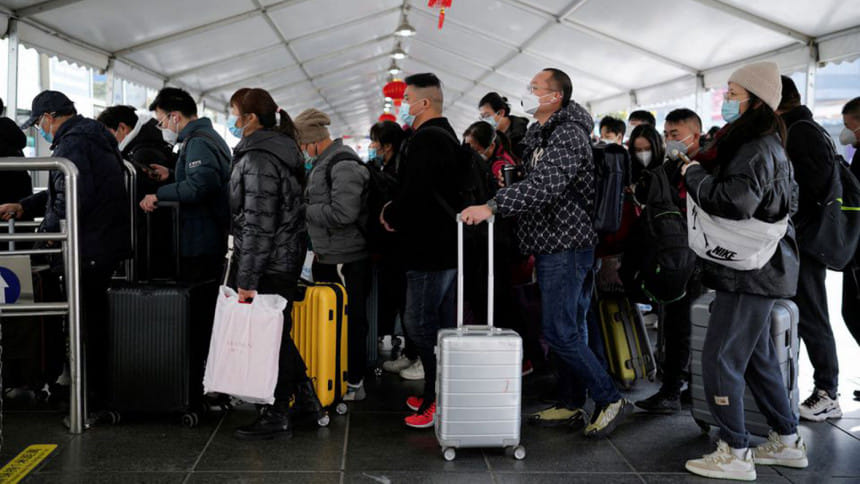Holiday trips within China surge after lifting of Covid curbs

Lunar New Year holiday trips inside China surged 74 per cent from last year after authorities scrapped Covid-19 curbs that had stifled travel for three years, media reported on Saturday.
The Lunar New Year is the most important holiday of the year in China, when huge numbers of people working in prosperous coastal cities head to their hometowns and villages for family reunions.
But for three years people were told not to travel during the holiday, with those who insisted facing the risk of snap lockdowns, multiple Covid tests, quarantine and even admonishment by their work units.
An estimated 226 million domestic trips were made by all means including plane during the holiday week that ended on Friday, state broadcaster CCTV reported, citing government figures.
That compares with about 130 million domestic trips during the holiday week last year, according to the transport ministry.
In the last Lunar New Year holiday before the novel coronavirus emerged in late 2019 in the central city of Wuhan, some 420 million trips were made internally.
As for travel abroad, inbound and outbound cross-border trips jumped 120.5 per cent from last year to 2.88 million, the National Immigration Administration said on Saturday.
During the Lunar New Year holiday in 2019, 12.53 million cross-border trips were made, the Xinhua news agency reported.
China abandoned its strict "zero Covid" policy in early December after protests against the restrictions, allowing people to travel and the virus to spread rapidly throughout the country.
Now that majority of the population had been infected, China has achieved herd immunity, Jiankang Shibao, a state-backed newspaper with a focus on health reported, citing Shanghai-based medical professor Fang Bangjiang.
On the economic outlook, analysts at Japanese brokerage Nomura said in a research note that holiday consumption of in-person services had recovered notably, as seen in the rebound in travel, but households were likely to be moderate in releasing pent-up demand, given their worsening balance sheets.

 For all latest news, follow The Daily Star's Google News channel.
For all latest news, follow The Daily Star's Google News channel. 



Comments